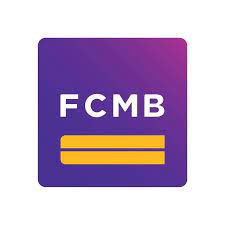Business
FCMB Offers N10m Clean Energy Loan To Households, Small Businesses

FCMB Offers N10m Clean Energy Loan To Households, Small Businesses
Nigerian households and small businesses looking to acquire solar panels, batteries, inverters, and other green energy equipment now have access to as much as N10 million to buy these assets through the First City Monument Bank (FCMB) Energy Finance Loan. The loan is designed to help homes and small businesses like hospitals, schools, restaurants, bars, stores, hotels, and fashion places keep life and work going by using clean energy.
Commenting on the Energy Loan product, the managing director of FCMB, Mrs. Yemisi Edun, described it as “another bold intervention by the lender to unlock the potential of the renewable and clean energy sector, provide relief to Nigerians, and encourage clean energy.”
She said: “Access to energy drives economic growth and development. The FCMB Energy Finance offering is a reaffirmation of our commitment to eco-friendly energy finance to fight climate change, drive the growth of businesses, improve the quality of life, and accelerate development through environmentally sustainable energy solutions. With the removal of the petrol subsidy, more Nigerians are focusing on alternative energy sources to power their homes and businesses.
“We will continue to scale up our support to individuals and businesses to enable the country to take full advantage of the opportunities in these areas for the overall benefit of humanity’’.
The Bank upgraded the product to lessen the impact of reduced subsidies on traditional fossil fuels, which has caused a rise in petrol prices across the country, given the pervasive use of small gasoline generators to power households and small businesses.
In his comment, the group head of Business Banking at FCMB, Mr. George Ogbonnaya, said “We understand the challenges individuals and businesses face in securing funding to provide clean and sustainable power. The FCMB Energy Finance loan is structured to eliminate these challenges. It is a flexible facility with two to seven years of repayment options at competitive interest rates. We urge Nigerians, especially small business owners, to take advantage of this opportunity to reduce energy costs for their homes and businesses’’.
Applauding the product, the President of the Renewable Energy Association of Nigeria, Mr. Ayo Ademilua, said
“The energy finance loan is innovative and coming at the right time when the market needs alternative energy solutions mostly due to PMS price increase”.
Speaking on carbon financing, the CEO of Consistent Energy Limited, Dr. Segun Adaju, said “The 2023 Electricity Act promotes private-public sector partnerships, allowing private companies to participate in the renewable energy space and catalyse investments through carbon trading. The carbon trading market has become attractive, and more parties are beginning to promote carbon trading in Africa following the Africa Carbon Markets Initiative (ACMI) established in 2022 to unlock the potential of voluntary carbon markets for financing Africa’s energy, climate, and development goals. It is heartwarming that FCMB has keyed into this by providing a platform through the FCMB Energy Finance Loan product to provide the much-needed funding to Nigerians to acquire affordable clean energy sources’’.
FCMB has taken the lead in deepening the renewable energy space through a three-pronged approach: capacity building, providing access to funding, and opportunities to connect renewable energy developers with end-users. The Bank has supported over 50 per cent of the key developers in Nigeria with debt financing for mini-grids, commercial, and solar home systems. It has so far disbursed over N7 billion for the execution of energy efficiency projects, cutting across mini-grids, solar energy, and other energy efficiency projects.
First City Monument Bank (FCMB) is a member of the FCMB Group Plc. The Bank is committed to fostering inclusive and sustainable growth within its communities, and it aims to build a supportive ecosystem rooted in Africa, connecting people, capital, and markets. By offering innovative financial solutions like Energy Finance loans, FCMB is helping to improve the economic well-being of businesses and Nigerians.
Business
Federal Mortgage Bank of Nigeria disburses N440 billion, delivers 39,000 homes since 1993 – Shehu Osidi

Federal Mortgage Bank of Nigeria disburses N440 billion, delivers 39,000 homes since 1993 – Shehu Osidi
The Federal Mortgage Bank of Nigeria (FMBN) has revealed it has disbursed N440 billion and delivered approximately 39,000 new homes under the National Housing Fund (NHF) scheme since its re-establishment in 1993.
This achievement was highlighted by the bank’s Managing Director and Chief Executive, Mr. Shehu Osidi, during his presentation at the 18th Africa International Housing Show in Abuja.
His presentation, titled “Financing the Housing We Need: A New Dawn at FMBN as an Institutional Enabler,” detailed the bank’s accomplishments in housing finance.
Osidi noted that, in addition to the N440 billion disbursed and the 39,000 new homes delivered, FMBN has provided around 25,500 mortgages and extended over 120,000 micro-housing loans, all offered under a single-digit interest rate lending regime.
“Since its re-establishment in 1993, the Bank has delivered about 39,000 new homes, about 25,500 mortgages and over 120,000 micro housing loans, all within a single-digit interest rate lending regime.
“Under the National Housing Fund (NHF) Scheme, it has registered 26,350 organisations and over 5.8 million cumulative contributors with over 1 million accounting for the self-employed sector.
“The Bank has disbursed the cumulative of N440 billion under its various loan windows to drive affordable housing finance for the Nigerian economy,” Osidi said.
Additionally, the FMBN Managing Director disclosed that in compliance with the provisions of the National Housing Fund Act, the bank has refunded N84.8 billion to 492,604 contributors who exited the scheme.
More insights
Highlighting more achievements of the Federal Mortgage Bank of Nigeria (FMBN), Osidi noted the recovery of N12 billion from the Federal Ministry of Finance.
This recovery was part of the N19 billion in wrongful deductions of National Housing Fund (NHF) contributions, which had been previously misconstrued as revenue under the 40% deduction regime. He further mentioned that FMBN continues to engage with relevant authorities to halt these deductions and recover the remaining balance of the trapped NHF funds.
Additionally, he explained that FMBN has expanded its loan products from mortgage financing to include housing construction, micro-housing financing, and rent-to-own options. New additions such as Home Improvement and Rent Assistance loans specifically target the non-salaried informal sector.
Osidi highlighted that the bank’s clientele now includes primary mortgage banks, real estate developers, housing cooperatives, and individual NHF contributors. Despite modest numbers, he emphasized that FMBN remains a key player in the housing sector.
He also outlined the executive management’s seven-point agenda, which focuses on enhancing automation, promoting cost efficiency, improving credit quality, effective project management, and expanding strategic partnerships to transform FMBN into a responsive and reliable institution.
Business
Analysis: Fidelity Pension Managers 2023 audited company and fund accounts

Analysis: Fidelity Pension Managers 2023 audited company and fund accounts
Fidelity Pension Managers recently published its 2023 audited accounts, providing a summary overview of its financial health and fund performance.
This report provides a summary review and presents key financial highlights, financial ratios, fund performance, and the trend in the number of Retirement Savings Account (RSA) holders.
Financial Highlights
Total Revenue: Total revenue for the company rose 23% to ₦2.59 billion in 2023, up from ₦2.1 billion in 2022. From the reports, this increase is attributed majorly to higher fee income generated from the pension funds it has under management.
Profit After Tax (PAT): PAT rose 26% to ₦666 million, up on the previous year’s 21% rise.
Operating Expenses: Operating expenses rose slower than revenue and PAT by 22% to ₦1.76 billion from ₦1.44 billion, leading to a slight drop in the company’s cost-to-income ratio, which fell to 67.98% from 68.57%. The company seems to be relatively prudently managing financial resources, amidst rising costs and inflationary pressures.
Shareholder’s Funds: The company’s shareholders funds ended the year at ₦5.95 billion in 2023 up 5% from the ₦5.64 billion in 2022.
Return on Equity (ROE): ROE was a very low 11.21%. Whilst this is a slight improvement on 2022’s 9.41%, the company does not seem to be efficiently deploying shareholders’ equity to generate profits.
Financial and Fund Highlights

Corporate Audited Annual Results

Financial Ratios

Fund Performance Highlights
RSA Funds Performance: Fidelity Pensions offers six of the seven regulated RSA pension funds to the public. Notably, all six funds put in a better performance than the previous year, whilst only four funds out-performed the industry benchmark returns (see our article on benchmark returns here).

5-Year Audited Pension Funds Performance

Number of RSA Holders
RSA Growth: The growth in the number of RSA holders was another highlight of the year. Fidelity Pension Managers saw an increase of 2.48% in RSA holders, adding 8,005 new accounts to close the year at 331,124 RSA holders.


Demographic Analysis
Age Distribution: The majority of 330,000 RSA holders (83.9%) registered in 2023 fell within the age bracket of <30 years to 39 years, indicating a young and growing industry subscriber base. Of the 2023 registrations, Fidelity Pension Managers recorded 2.43% of this growth.

Conclusion
Fidelity Pension Managers has demonstrated improved financial growth in 2023, marked by increased revenue, higher profitability, and a growing RSA customer base. However, the company remains constrained by low assets under management, which limits its fee-generating potential. To overcome this challenge, Fidelity Pension Managers must focus on enhancing the performance of the funds it manages and attracting more RSA holders. Improved fund performance will not only benefit current RSA holders but also make Fidelity Pensions an attractive option for those looking to transfer their pensions.
Business
Zenith Bank maintains its position as Nigeria’s top bank in terms of Tier-1 capital for the 15th consecutive year.

Zenith Bank maintains its position as Nigeria’s top bank in terms of Tier-1 capital for the 15th consecutive year.
Zenith Bank Plc for fifteenth consecutive year has retained its position as the Number One Bank in Nigeria by Tier-1 Capital in the 2024 Top 1000 World Banks’ Rankings, published by The Banker Magazine.
This ranking places Zenith Bank Plc as the 565th Bank globally with a Tier-1 Capital of $2.01 billion. The rankings, published in the July 2024 edition of The Banker Magazine of the Financial Times Group, United Kingdom, recognise Zenith Bank’s continued financial strength and stability.
They are based on the 2023 year-end Tier-1 capital of banks globally and remain the primary source for global bank financials used by most international organisations in their assessments of banks.
Tier-1 Capital describes capital adequacy, the core measure of a bank’s financial strength from a regulator’s perspective. According to the ranking, Tier-1 Capital, as defined by the latest Bank for International Settlements (BIS) guidelines, includes loss-absorbing capital, i.e., common stock, disclosed reserves, retained earnings, and minority interests in the equity of subsidiaries that are less than wholly owned. A strong Tier-1 capital ratio boosts investor and depositor confidence, indicating the Bank is well-capitalised and financially stable.
Commenting on this achievement, the Group Managing Director/CEO of Zenith Bank Plc, Dame (Dr.) Adaora Umeoji, OON, said, “We are deeply honoured to be recognised as the Number One Bank in Nigeria by Tier-1 Capital for the fifteenth consecutive year.
“This recognition is a testament to our strategic focus on sustainable growth, innovation, and customer satisfaction. It also emphasises our resilience and strength in navigating the ever-evolving financial landscape.
“Our dedicated team of professionals has remained steadfast in ensuring that we maintain our position at the forefront of the banking industry.” She extended her profound and sincere appreciation to the Founder and Chairman, Dr. Jim Ovia, CFR, whose visionary and transformative leadership has played a pivotal role in cultivating a resilient and thriving establishment.
“She also expressed her deep appreciation for the board’s insightful governance, the staff’s relentless dedication, and the unwavering loyalty of the bank’s esteemed customers to the Zenith brand.
Zenith Bank’s financial performance for the year was driven by a remarkable triple-digit growth of 125% in gross earnings, from N945.6 billion reported in 2022 to N2.132 trillion in 2023.
This growth led to an improved market share in both the retail and corporate segments despite a persistently challenging macroeconomic environment. The increase in gross earnings was primarily due to growth in interest and non-interest income. Interest income growth was attributed to the increase in the size of risk assets and their effective repricing, while non-interest income was driven by significant trading gains and gains from the revaluation of foreign currencies.
Zenith Bank recently commenced recapitalisation efforts with the conclusion of its Capital Markets Day held on 11th July 2024. It aims to raise the least amount of capital amongst its peers at N230 billion, considering it already maintains a robust capital base of N270.7 billion.
The Bank remains dedicated to supporting the growth of the Nigerian economy and providing its numerous customers with innovative and efficient banking solutions.
Zenith Bank’s track record of excellent performance has continued to earn the brand numerous awards, with these latest accolades coming on the heels of several recognitions. These include being recognised as the Number One Bank in Nigeria by Tier-1 Capital for the fourteenth consecutive year in the 2023 Top 1000 World Banks Ranking, published by The Banker Magazine.
The Bank was also awarded the Bank of the Year (Nigeria) in The Banker’s Bank of the Year Awards for 2020 and 2022; and Most Sustainable Bank, Nigeria in the International Banker 2024 Banking Awards.
Further recognitions include Best Bank in Nigeria for three consecutive years from 2020 to 2022 in the Global Finance World’s Best Banks Awards and Best Commercial Bank, Nigeria for three consecutive years from 2021 to 2023 in the World Finance Banking Awards.
Additionally, Zenith Bank has been acknowledged as the Best Corporate Governance Bank, Nigeria, in the World Finance Corporate Governance Awards for 2022 and 2023, and ‘Best in Corporate Governance’ Financial Services’ Africa for four consecutive years from 2020 to 2023 by the Ethical Boardroom.
The Bank’s commitment to excellence saw it being named the Most Valuable Banking Brand in Nigeria in the Banker Magazine Top 500 Banking Brands for 2020 and 2021, and Retail Bank of the Year for three consecutive years from 2020 to 2022 at the BusinessDay Banks and Other Financial Institutions (BAFI) Awards.
The Bank also received the accolades of Most Sustainable Bank, Nigeria, in the International Banker 2023 Banking Awards, Best Commercial Bank, Nigeria and Best Innovation in Retail Banking, Nigeria, in the International Banker 2022 Banking Awards.
Zenith Bank was named Bank of the Decade (People’s Choice) at the ThisDay Awards 2020, Bank of the Year 2021 by Champion Newspaper, Bank of the Year 2022 by New Telegraph Newspaper, and Most Responsible Organisation in Africa 2021 by SERAS Awards.
-

 News2 years ago
News2 years agoWhat Led Us To Choose Peter Obi As Our Candidate?-Middlebelt Forum
-

 BREAKING NEWS10 months ago
BREAKING NEWS10 months agoKey Insights for the Upcoming 2023/2024 UEFA Champions League Campaign
-

 Entertainment9 months ago
Entertainment9 months agoTaylor Swift Skips Travis Kelce’s Big Game to Prepare for ‘Eras Tour’
-

 News6 months ago
News6 months agoPaul Agbonze Obazele Addresses Labor Party Leaders in Edo Central Senatorial District
-

 BREAKING NEWS11 months ago
BREAKING NEWS11 months agoVan Gaal Alleges 2022 World Cup Rigged in Favor of Messi and Argentina
-

 News1 year ago
News1 year ago“New King of Serie A,” Tinubu hails Osimhen on winning the Serie A Title
-

 BREAKING NEWS12 months ago
BREAKING NEWS12 months agoBayern Munich Engages in Discussions for the Acquisition of David De Gea from Manchester United
-

 News2 years ago
News2 years agoHappy 62nd Anniversary of Nigeria’s Independence!










